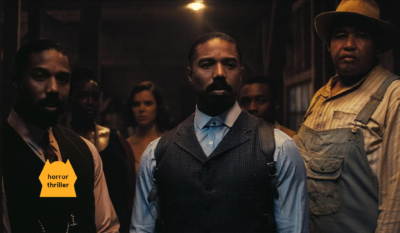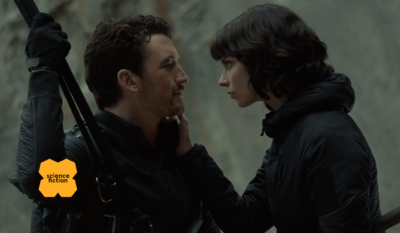The Worst Person in the World explores the millennial urge to reinvent yourself every time things get hard through an aimless 30-year-old navigating her life in Oslo
How do you balance living for yourself while also being a good person? Isn't that the mad irony of our existence? We're given a set amount of time on this earth and we're meant to immediately know what we want to do with that time. As if that wasn't enough, we're also expected to spend some of that limited time leaving something behind, even if that's just in the people that have known us. The almost unspoken impossible nature of that is what makes the title The Worst Person in the World is so apt for Joachim Trier's fifth film and third in his Oslo Trilogy.
As we go through our lives, we weave and shape them in ways that change the design of everything entirely. We make decisions, some for the better and some for the worse, and we have no choice but to live with them. As millennials, we are particularly hard on ourselves — it feels like we can never make the right decision, and when we go for a decision that makes us feel good, the world around us tells us we're being selfish. But what if for a moment we could make the world stop? What if we could make a decision without worrying about how it'll affect the people around us or how it'll change the trajectory of our lives? What if we could live in the now? Well, it might make us the worst person in the world.
But at the very least we lived.
ADVERTISEMENT
Our protagonist Julie (Renate Reinsve) (antagonist in her own eyes), is at a point in her life where she is confronting those decisions at a rapid pace. The movie, which is broken into twelve chapters, starts with a prologue where Julie, like many of us, blows up her life. She stops pursuing a medical degree on a whim in order to chase a different whim — becoming a photographer because she took one good photo with her iPhone. She quickly dumps a model she met pursuing that career path for a guy she meets at a bar. Immediately after, she moves in with him. And that's all before the movie truly begins.
In a post-screening Q&A, Reinsve said that she hopes that those who watch the film, whether they're Julie's age, just starting out in life, or in their final chapter, find at least some of their own experiences in it. Which is what helped me love the film – after all, how much could I, a gay Asian-American man living in New York City, relate to a story about a straight Norwegian woman living in Oslo? Or how could a person in the final years of their life identify with a person just starting theirs? It turns out a lot. That's because the movie presupposes that the millennial experience is a universal one. We're just the first generation to talk about it.
Julie is in the midst of experimenting with the shape of her life – she's trying out different versions of herself until she finds one that fits. The trouble is, that instead of looking inward, she looks for herself in a career, hobbies, or in a significant other. Aksel (Anders Danielson Lie), the guy at the bar from the prologue, represents an exciting new version. He's older and has an accomplished career as a comic book artist, two things that Julie is chasing. And for a time, their toe to toe wit keeps their relationship alive. However, Julie, like so many millennials when we taste stability, begins to question her decisions.
Trier isn't precious about the themes, though. He's focused on Julie as a singular character and a marvelous one at that. Reinsve's sardonic wit and doe-eyed patina is at times charming, funny, and painfully relatable. The entire movie is. Not a moment passes that you aren't laughing, crying, or doing both while cursing the screenplay's ability to know you so well.
ADVERTISEMENT
And that's the odd comfort of The Worst Person in the World – for an international film, it fluently speaks the language of a generation.
In the same ways life does, the movie takes many twists and turns. New people crop up — mainly Herbert Nordrum's Eivind, who makes Julie question her current situationship — while others fall away. Moments of tragedy strike unexpectedly and the past is revisited in both joy and pain. But what Trier assumes is that the sum of these moments, the ones that make us laugh, cry, and scream (and the movie will have you doing all three), add up to a full picture of your life, with the realization that happiness isn't an end in of itself, but rather the journey of your life in all its ebbs and flows and thinking, “it's all going to be okay.”
In the end, does Julie find the right version of herself? Maybe. Maybe not. But at the very least, she doesn't feel like the worst person in the world — and neither do we.
ADVERTISEMENT
More movies, less problems
- Jordan Peele Unleashes the First Trailer for ‘HIM'
- ‘Sinners' is the best movie of the year | movie review
- Romantic sci-fi thriller ‘The Gorge' hits its mark | movie reivew
Hey! I'm Karl. You can find me on Twitter and Letterboxd. I'm also a Tomatometer-approved critic.
💌 Sign up for our weekly email newsletter with movie recommendations available to stream.
ADVERTISEMENT
Hey, I'm Karl, founder and film critic at Smash Cut. I started Smash Cut in 2014 to share my love of movies and give a perspective I haven't yet seen represented. I'm also an editor at The New York Times, a Rotten Tomatoes-approved critic, and a member of the Online Film Critics Society.


